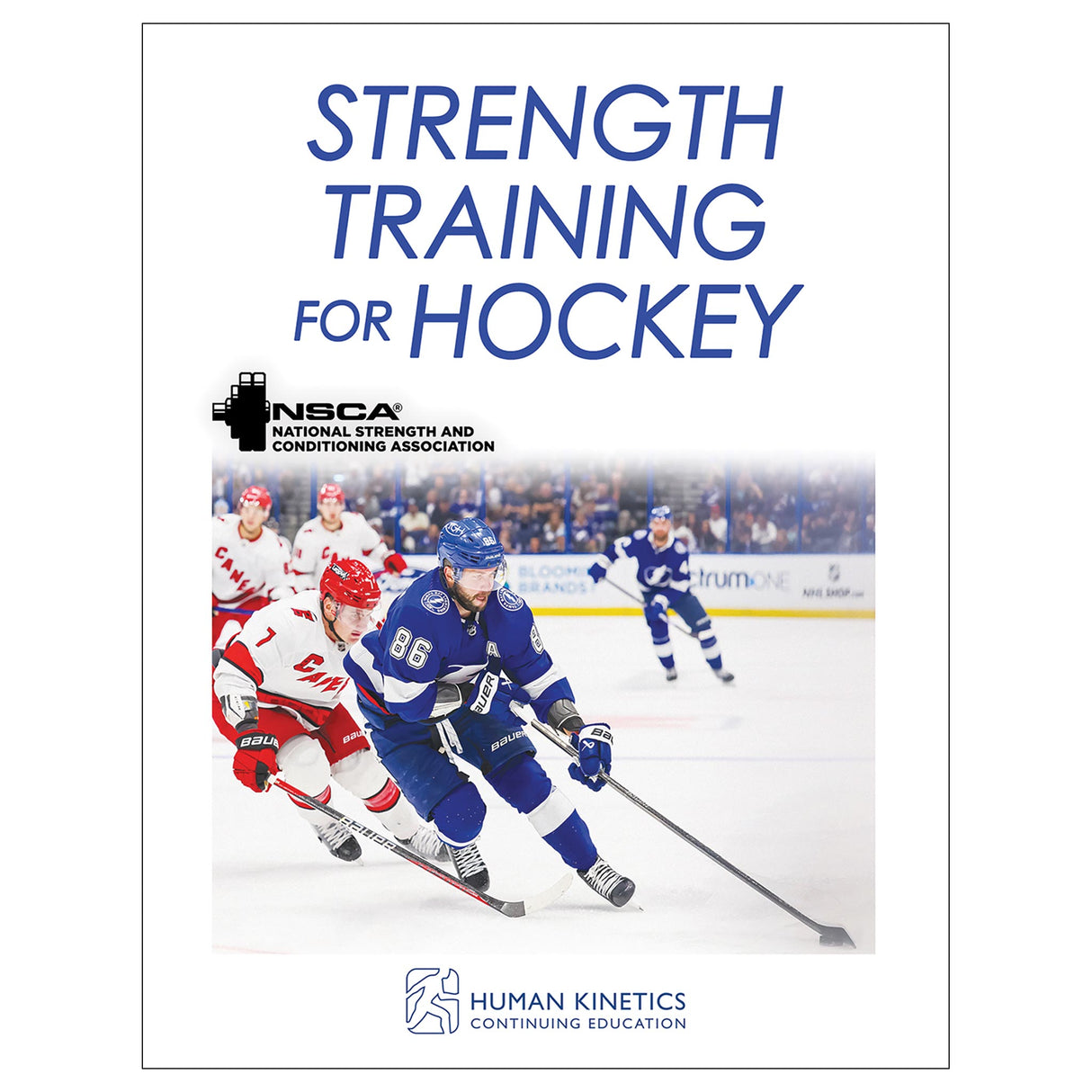Strength Training for Hockey Online CE Exam With Ebook
Author: Human Kinetics
$114.95 CAD
Human Kinetics strongly recommends that you complete your exam within the calendar year of your date of purchase to ensure approved credits do not expire for your organization.
- Strength Training for Hockey ebook
- Online continuing education exam
Developed with the expertise of the National Strength and Conditioning Association (NSCA), Strength Training for Hockey provides a general overarching biomechanical analysis of hockey and specific analyses of the physical demands of each position: goalie, forward, and defense. Using these analyses, you can design an effective training program that translates to performance on the ice. You will also find the following:
- 8 detailed protocols to test strength, power, speed, and body composition
- 5 total body resistance exercises with 9 variations
- 11 lower body exercises with 30 variations
- 13 upper body exercises with 39 variations
- 16 anatomical core exercises with 40 variations
- 30 sample programs for off-season, preseason, in-season, and postseason resistance training
Backed by the NSCA and the knowledge and experience of individuals who have years of experience as strength and conditioning professionals for hockey, Strength Training for Hockey is the authoritative resource for creating hockey-specific resistance training programs.
After reading the ebook, certified professionals can take the companion CE exam to earn continuing education credits.
Learning Objectives
- Demonstrate the importance of resistance training in hockey athletes.
- Describe the biomechanics and energy systems involved in hockey.
- Describe the various physical qualities related to performance in hockey.
- Describe and select appropriate testing protocols.
- Select appropriate exercises for hockey athletes.
- Describe training program variables for resistance training of hockey athletes.
- Explain safe and effective spotting techniques and breathing techniques in the performance of resistance training exercises.
- Identify the primary muscles trained with specific resistance training exercises.
- Identify proper coaching tips, progressions, and regressions for resistance training exercises.
- Describe the goals, objectives, length, structure, and organization of a resistance training program for the off-season, preseason, in-season, and postseason.
Audience
Certified strength and conditioning professionals, personal trainers, or other related professionals who supervise and train athletes for hockey.Meghan Duggan
Introduction
Brijesh Patel and Kevin Neeld
Part I. Principles of Sport-Specific Resistance Training
Chapter 1. Importance of Resistance Training
Adam Douglas
Chapter 2. Analysis of the Sport and Sport Positions
Anthony Donskov
Chapter 3. Testing Protocols and Athlete Assessment
Devan McConnell
Chapter 4. Sport-Specific Program Design Guidelines
Vicki Bendus
Part II. Exercise Technique
Chapter 5. Total Body Exercise Technique
Cam Davidson
Chapter 6. Lower Body Exercise Technique
Mike Potenza
Chapter 7. Upper Body Exercise Technique
Tim Lebbossiere
Chapter 8. Anatomical Core Exercise Technique
Maria Mountain
Part III. Program Design Guidelines and Sample Programs
Chapter 9. Off-Season Programming
Mark Fitzgerald (High School), Matt Shaw (College), and Matt Nichol (Professional)
Chapter 10. Preseason Programming
Mark Fitzgerald (High School), Matt Shaw (College), and Matt Nichol (Professional)
Chapter 11. In-Season Programming
Mark Fitzgerald (High School), Matt Shaw (College), and Matt Nichol (Professional)
Chapter 12. Postseason Programming
Mark Fitzgerald (High School), Matt Shaw (College), and Matt Nichol (Professional)





